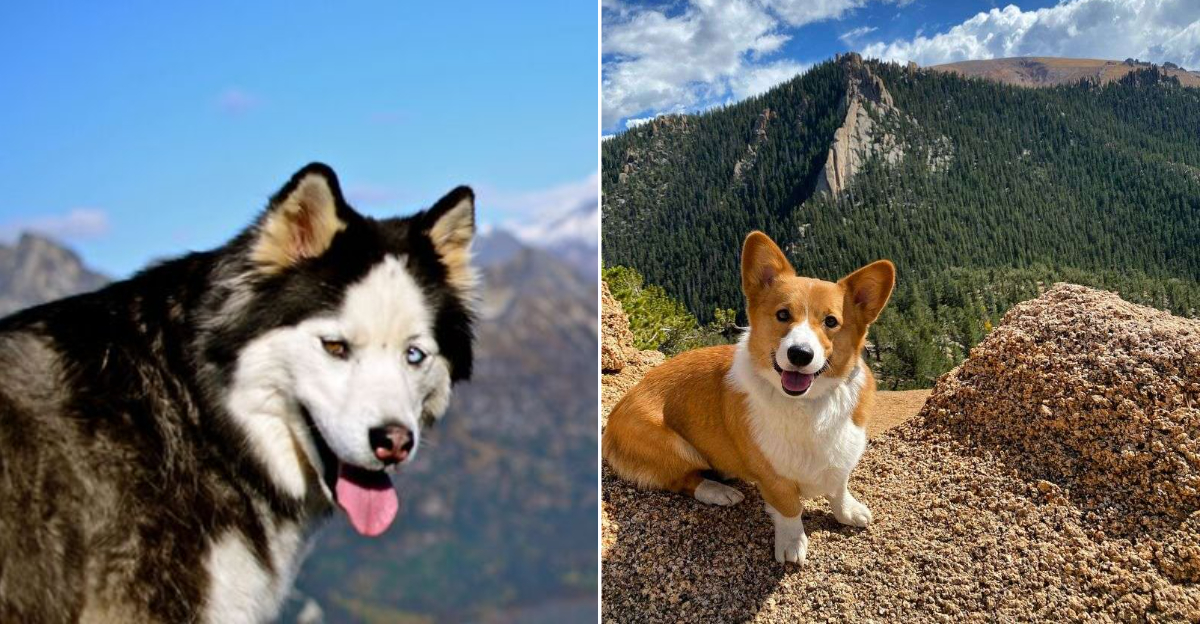Think only big dogs rule the mountains? Think again — that tiny blur charging up the trail might just be a corgi!
While most expect to spot huskies or shepherds leading the alpine pack, it’s the short-statured corgi that’s stealing the spotlight. With their sturdy build and herding-born stamina, these little legends are surprisingly at home above the treeline.
Ready to meet the corgi — and six other high-altitude heroes — that were made for mountain life? Let’s hit the trail!
1. Corgi
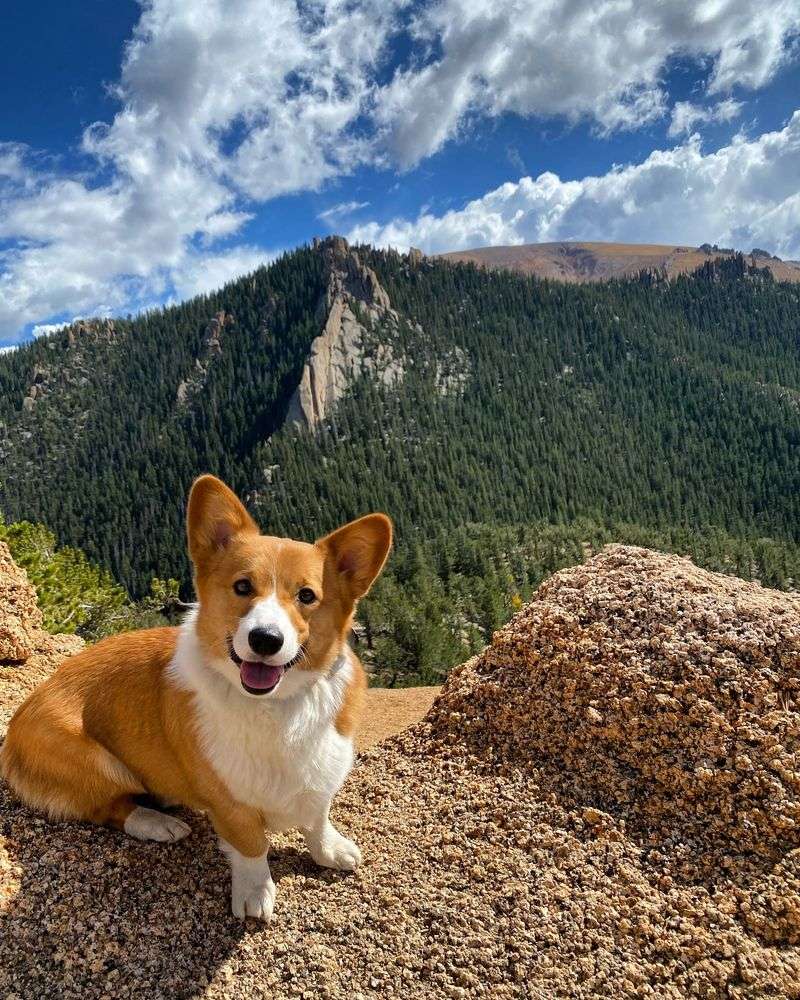
Those short legs aren’t a disadvantage – they’re a mountain-climbing superpower! Pembroke Welsh Corgis maintain a low center of gravity that prevents tumbles on uneven terrain. Their dense double coat protects against Colorado’s unpredictable weather swings.
Originally bred to herd cattle across Welsh hillsides, these pups possess remarkable endurance packed into a compact frame. Their powerful hindquarters provide the push needed to scramble up steep inclines without tiring easily.
Corgis’ alert nature makes them excellent trail companions, often spotting wildlife before their human hiking partners. Just remember to pack extra water – those fluffy bodies can overheat during summer adventures!
2. Australian Cattle Dog
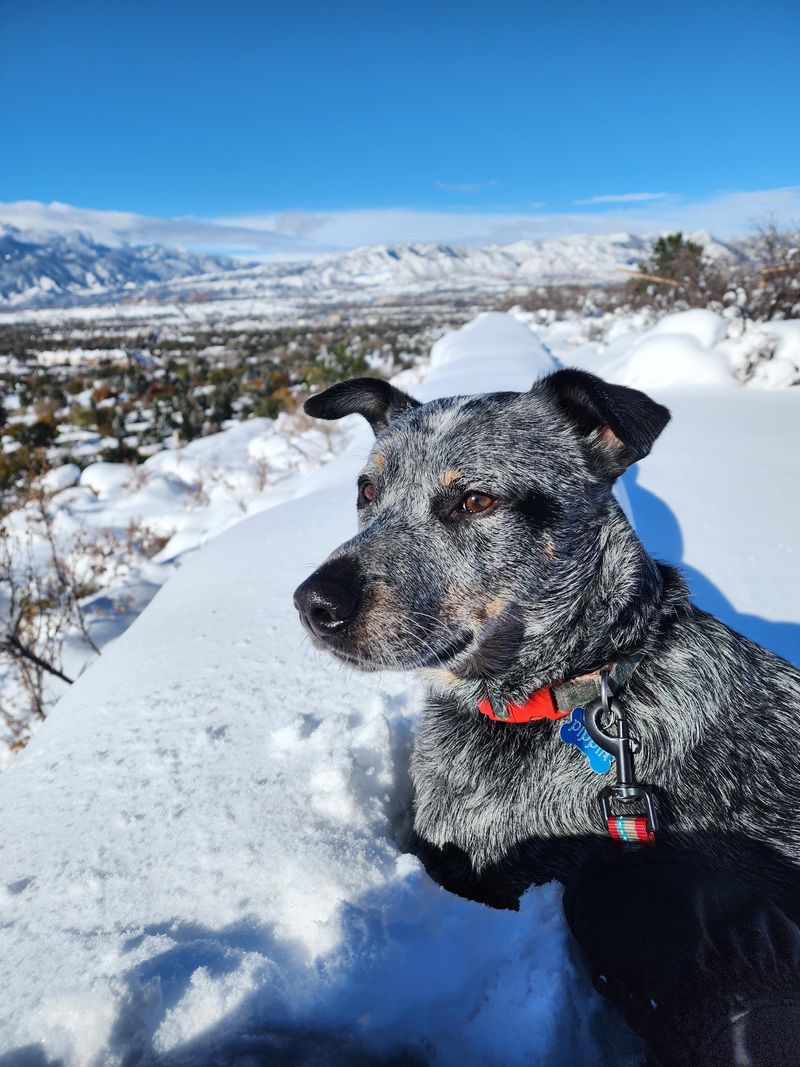
Marathon-ready muscles and weather-resistant coats make Australian Cattle Dogs natural mountain explorers. These agile athletes were developed to work cattle across Australia’s harsh Outback, making Colorado’s terrain feel like a casual stroll.
I once watched an Aussie Cattle Dog outpace every hiker on a steep trail to Mount Elbert, then circle back repeatedly to check on slower members of the group. Their protective instincts create natural trail guardians.
Mental sharpness complements their physical abilities – they quickly learn trail etiquette and respond reliably to commands even in distracting environments. Their moderate size navigates both wide paths and narrow passages with equal agility.
3. Bernese Mountain Dog
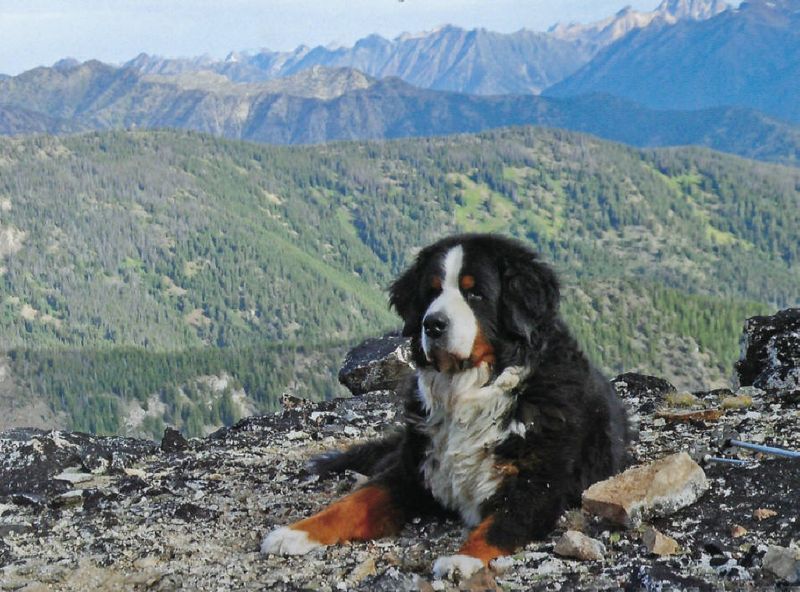
Born for alpine adventures, Bernese Mountain Dogs have hauled carts through Swiss mountains for centuries. Their massive paws act like natural snowshoes, distributing weight evenly across snowy trails. That gorgeous tricolor coat isn’t just for show – it provides excellent insulation against mountain chill.
Despite their size, Berners move with surprising grace across rocky terrain. They excel in cooler temperatures and higher elevations where smaller breeds might shiver.
Pack-oriented by nature, these lovable giants form deep bonds with hiking companions. They’ll happily carry their own supplies in doggy backpacks, making them practical partners for overnight adventures. Just avoid summer afternoon hikes – their thick coats make heat their kryptonite!
4. Siberian Husky
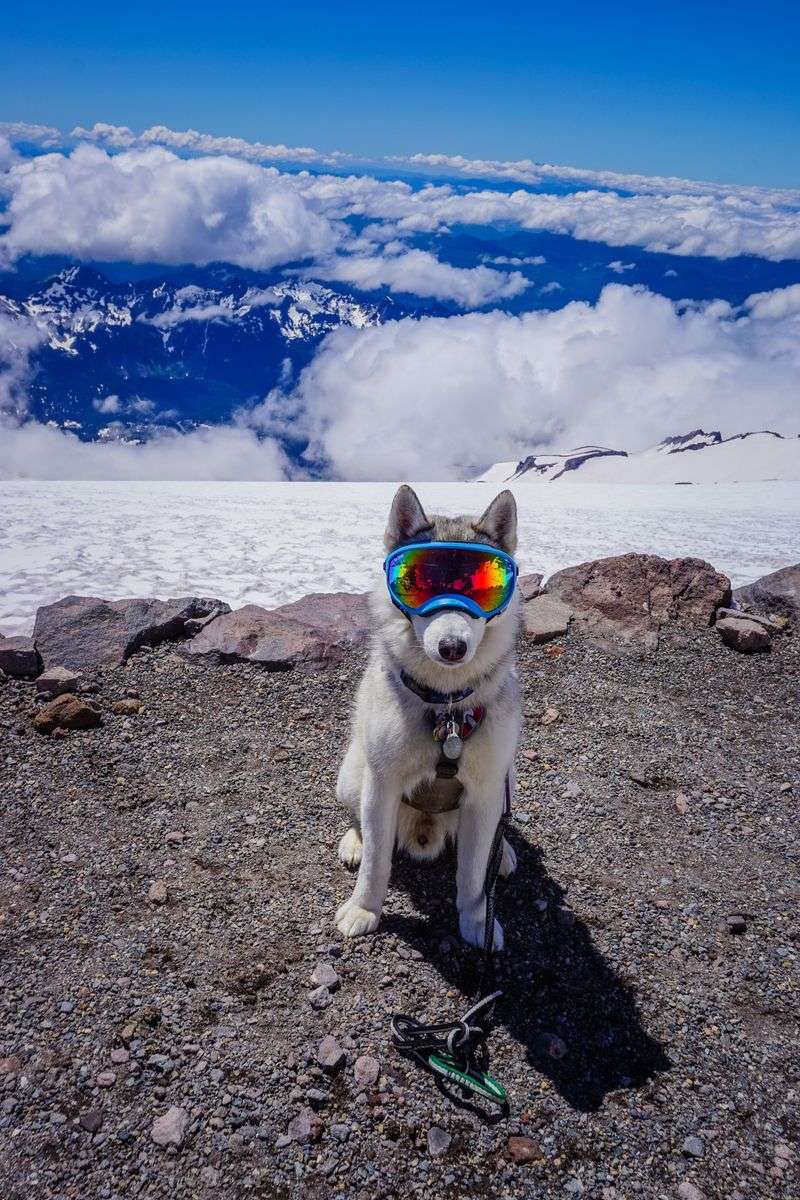
Arctic heritage makes Siberian Huskies practically engineered for Colorado’s snowiest trails. Their efficient gait allows them to trot for miles without depleting energy reserves. Those ice-blue eyes aren’t just striking – they evolved to reduce glare on snow-covered landscapes.
Huskies possess a remarkable metabolism that conserves energy in cold environments. Their paw pads contain special circulation systems that prevent freezing even in subzero temperatures.
Social butterflies of the mountain world, Huskies typically welcome canine trail companions with enthusiasm. Their playful nature turns any hiking break into an entertaining snow romp. Remember though – their strong prey drive means keeping them leashed around wildlife is non-negotiable!
5. Border Collie
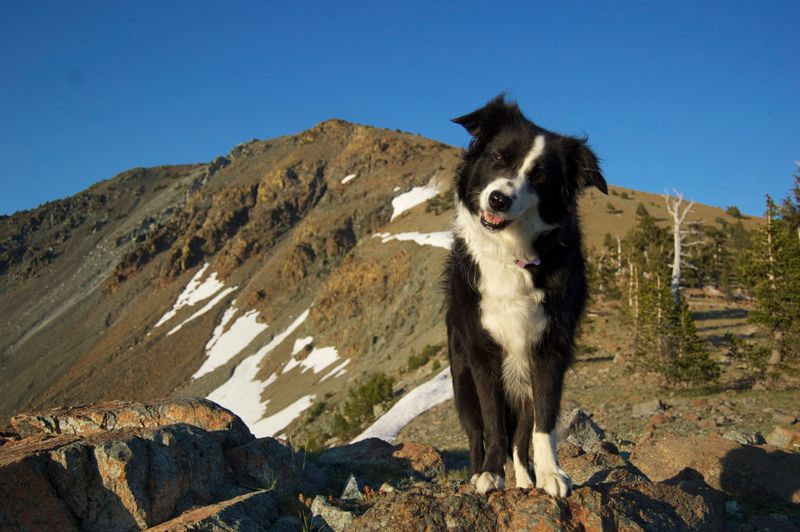
Einstein in fur form, Border Collies approach mountain challenges with calculated precision. Their remarkable problem-solving abilities help navigate tricky trail sections where other dogs might hesitate. That intense stare isn’t rudeness – it’s their processing power at work!
Feather-light footwork allows Border Collies to dance across unstable terrain without dislodging rocks. Their moderate coat thickness works perfectly in Colorado’s variable climate, providing warmth without excessive insulation.
Last fall, my friend’s Border Collie memorized our entire trail route after just one hike, leading us confidently even when fog reduced visibility. Their athletic builds handle elevation changes effortlessly, making them ideal companions for ambitious peak-baggers targeting Colorado’s famous fourteeners.
6. Alaskan Malamute

Built like furry freight trains, Alaskan Malamutes thrive where lesser dogs retreat from cold. Their massive bone structure supports powerful muscles designed for pulling heavy loads across snowy landscapes. Those broad chests house exceptional lung capacity – perfect for thin mountain air.
Malamutes possess an almost supernatural ability to predict weather changes. Many owners report their Malamutes becoming especially playful just before snowstorms arrive in the mountains.
Unlike their Husky cousins, Malamutes operate with deliberate, energy-conserving movements. They excel at multi-day backpacking trips, happily carrying supplies while maintaining steady pace. Their thick double coats require extra brushing after adventures, as they collect burrs and trail debris like walking Velcro!
7. Labrador Retriever
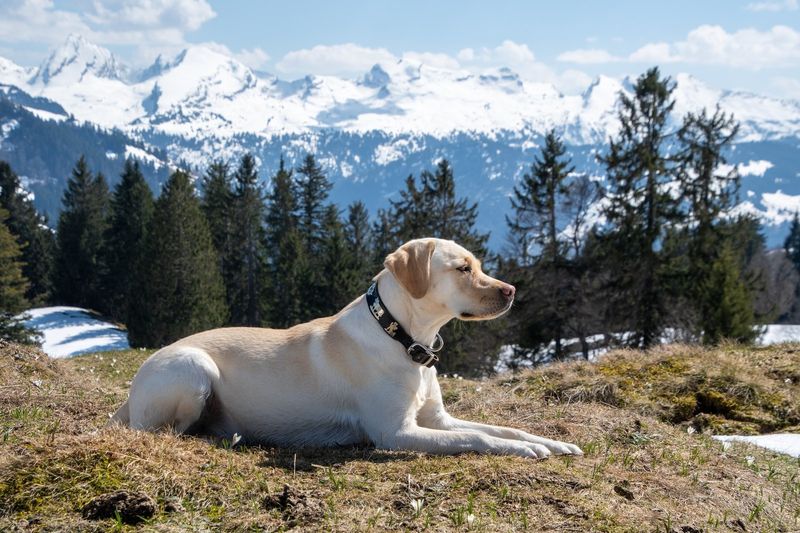
America’s favorite dog earns its popularity on mountain trails too! Labrador Retrievers combine athleticism with adaptability, handling everything from dusty summer paths to snowy winter routes. Their water-resistant coats shed mountain drizzle while providing moderate insulation.
Labs possess remarkable temperature regulation abilities. Their otter-like tails serve as rudders when crossing mountain streams, while webbed feet make them confident swimmers for cooling off in alpine lakes.
Food motivation makes Labs highly trainable trail companions – they’ll happily follow commands for the promise of trail mix sharing. Their friendly disposition creates natural ambassadors, often breaking ice between passing hiking groups. Just pack extra snacks – a Lab’s appetite grows exponentially with altitude!
